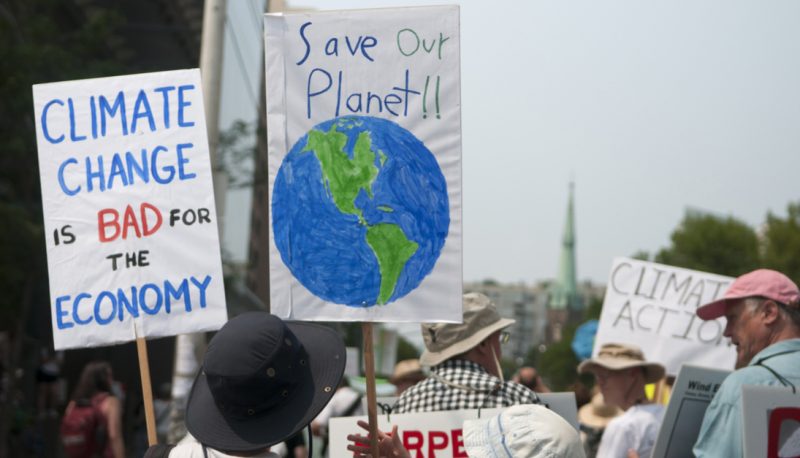Judge Kavanaugh would threaten hard-won environmental protections today and for generations to come.
Judge Kavanaugh routinely sides with corporations and polluters over public health and the environment.
- Two dissents in Grocery Manufactures Ass’n. v. EPA favor corporations challenging EPA’s approval of a pollution-reducing gas-ethanol blend
- Howmet Corp. v. EPA dissent would have allowed a corporation’s unlabeled corrosive chemical shipment to go unpunished
- Mingo Logan Coal Co. v. EPA dissent would have allowed a coal company to continue stream pollution
- Mexichem Specialty Resins, Inc., v. EPA dissent would have delayed an EPA rule limiting hazardous PVC manufacturing emissions
- White Stallion Energy Center v. EPA dissent argues against air pollution regulations targeting mercury and other toxic pollutants
- The list goes on
Even when he doesn’t disagree with the EPA and other agencies, Judge Kavanaugh nevertheless favors industry and opposes environmental protections.
- American Bird Conservancy, Inc. v. FCC dissent opposes a more complete FCC review of the possible harm to migratory birds posed by Gulf Coast cell towers based on, according to his fellow judges, inappropriate cases and a “mistaken assumption”
- Sierra Club v. EPA dissent favors an improper EPA rule that prevented state and local authorities from adding their own requirements for monitoring factories and other air pollution sources
Judge Kavanaugh appears likely to side with Trump’s first Supreme Court nominee, Justice Gorsuch, in limiting the EPA and other agencies’ roles regarding the laws they are expressly charged with implementing.
- Argues for limiting judicial deference to agencies’ interpretations of the statutes they administer and for the outright reduction or elimination of some agencies
- Overturned by the Supreme Court in Environmental Protection Agency v. EME Homer City Generation, holding that, in attempting to undermine the EPA, he tried to “improve upon” rather than “apply” federal law
- Overturned by his own D.C. Circuit Court in PHH Corporation v. Consumer Financial Protection Bureau after he argued that independent agencies like CFPB “pose[d] a significant threat to individual liberty”
Judge Kavanaugh has a narrow view of legal standing for those seeking to defend protections for the environment, public safety, and consumers, but a broad view of legal standing for corporate interests.
- Public Citizen v. NHTSA ruling holds that increased risk of severe traffic accidents was not “sufficiently ‘imminent'” to challenge vehicle safety standards
- Carpenters Industrial Council v. Zinke ruling says that “the amount is irrelevant” when considering economic impact and corporations’ standing to challenge environmental regulations
The environmental stakes are high in a number of key pending cases that may well make their way to the high court.
- The Supreme Court has already agreed to hear:
- Sturgeon v. Frost: National Park Service authority to regulate activities on navigable waters within NPS boundaries in Alaska
- Virginia Uranium, Inc. Warren: Atomic Energy Act preemption of a Virginia ban on mining uranium on non-federal lands
- Weyerhaeuser Company v. United States Fish and Wildlife Service: Private property rights versus the federal government’s designation of critical habitats essential to endangered species
- The Supreme Court may also consider whether the Clean Water Act covers discharges to surface waters through groundwater channels in cases such as Upstate Forever v. Kinder Morgan Energy Partners, LP and Hawaii Wildlife Fund v. City of Maui
